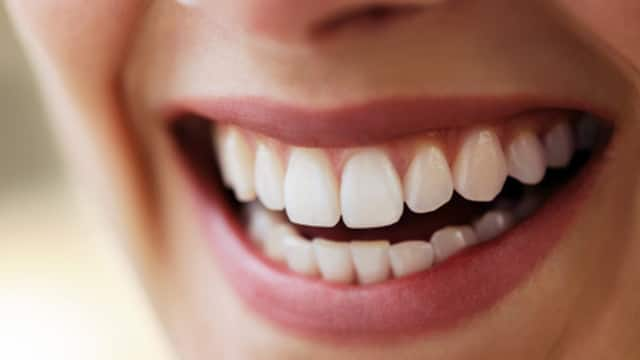Causes of Sensitivity
The pain or sensitivity you feel can be attributed to number of oral health issues. Consider these potential causes, all of which can help you (and your dentist) address the problem efficiently:
- Enamel erosion. Teeth are protected by enamel, which is their first defence against hot, cold, sticky and abrasive items. When this enamel wears down, it can cause tooth decay, which exposes sensitive nerves within the pulp of the teeth. Enamel can become weaker with age, an acidic or sugary diet and a history of acid reflux disease.
- Cavities. Fissures in your teeth can expose the same tender nerves, so cavities – both big and small – can be the culprit as well. In fact, sensitivity to hot and cold foods is often a warning sign that a cavity is forming and it's time to make an appointment to see your dentist. Similarly, fillings that repair cavities can become loose or fall out, causing hypersensitivity where the original cavity was cleared out.
- Receding gums. The National Health Portal of India explains that a build-up of plaque or tartar can cause the gum to recede down the tooth and even destroy the bony support of the tooth. Due to receded gums, the roots of the teeth get exposed and become more sensitive. Pockets can form in the gums around the tooth, making the area difficult to keep clean and the problem worsen.
Regardless of the cause, a tooth sensitive to hot or cold is always a symptom of a broader oral health issue, which means it can be treated with behavioural changes for a pain-free day. Consider the following treatment options with the help of your dentist:
What You Can Do
According to the Indian Dental Association, there are many brands of toothpaste made to help ease the pain of sensitive teeth. Toothpastes containing Potassium Nitrate may provide relief from sensitivity by desensitising nerves. This can effectively block your sensitivity triggers and help strengthen tooth enamel to banish pain from these types of food. Sensitivity toothpastes can be purchased over the counter, but it is still a good idea to discuss the condition with your dentist.
When You'll Need Office Treatment
If sensitivity is the result of a cavity, loose filling or exposed nerves, you'll need dental treatment to get rid of it. Therefore, your dentist may need to fill a cavity, replace an existing filling or apply a crown over the exposed nerves for the irritation to subside. He or she can also use bonding materials to fix cracked teeth from a physical incident – which may have caused tooth damage you weren't aware of.
Root Canal
In some cases, sensitivity can be the result of an infection deep into the tooth. If this is the cause of your sensitivity, your dentist may even suggest a root canal. But don't worry, the modern procedure simply cleans out the infection from the tooth, and the tooth is then filled with a material called gutta-percha before being capped.
The Indian Dental Association recommends that if tooth sensitivity persists, it could be a sign that you have a cracked or broken tooth or gum disease. The surest way to ease, or even eliminate tooth sensitivity, is to visit your dentist for an evaluation and treatment. Of course, caring for your teeth through a regular oral hygiene routine can help stave off sensitivity due to decay and gum disease.
Even with the best care, however, sensitivity can be the result of a cracked tooth or regular wear and tear. By defining your symptoms and seeing your dentist, you can come up with a solution that results in healthy teeth – and comfort when having your morning coffee.
This article is intended to promote understanding of and knowledge about general oral health topics. It is not intended to be a substitute for professional advice, diagnosis or treatment. Always seek the advice of your dentist or other qualified healthcare provider with any questions you may have regarding a medical condition or treatment.
ORAL HEALTH QUIZ
What's behind your smile?
Take our Oral Health assessment to get the most from your oral care routine
ORAL HEALTH QUIZ
What's behind your smile?
Take our Oral Health assessment to get the most from your oral care routine











